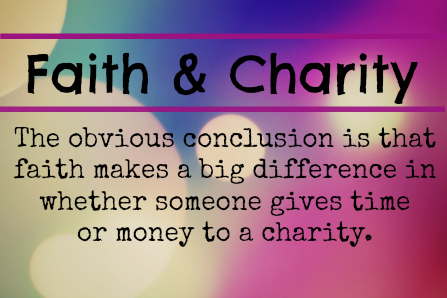Here is an interesting fact. Families in San Francisco give almost exactly the same amount to charity each year as families in South Dakota. Arthur Brooks talked about this in his book, Who Really Cares? He went on to explain that these two communities were very different. They were separated by not only geography but by many cultural differences.
Their donations to charity also represented a significant difference due to income. The average San Francisco family made (back when the book was written) nearly twice as much each year as a family in South Dakota. Put another way, an average South Dakota family gave away 75 percent more of its household income each year than the average family in San Francisco. When Brooks asked an executive of a foundation in South Dakota why people in her state gave so much more, she had a simple answer: religion.
People of faith give much more than secular people. In his book, he divides Americans into four groups to show their differences in giving to charity.
Religious conservatives are the largest group of the four. They represent 24 percent of all Protestants, 19 percent of Catholics, along with a number of other religious groups. This group is most likely to give money to charity and they give away the most money.
Religious liberals are the smallest of the four groups. They are almost as likely to give as religious conservatives. They are a little less likely to volunteer
Secular conservatives are much less likely to give to charity. They are also much less likely to volunteer or help people in need. Secular liberals are the second largest group and have the highest average income. Nevertheless they are poor givers, even to secular charities they might be expected to support.
The obvious conclusion is that faith makes a big difference in whether someone gives time or money to a charity.
 Listen Online
Listen Online Watch Online
Watch Online Find a Station in Your Area
Find a Station in Your Area












 Listen Now
Listen Now Watch Online
Watch Online
